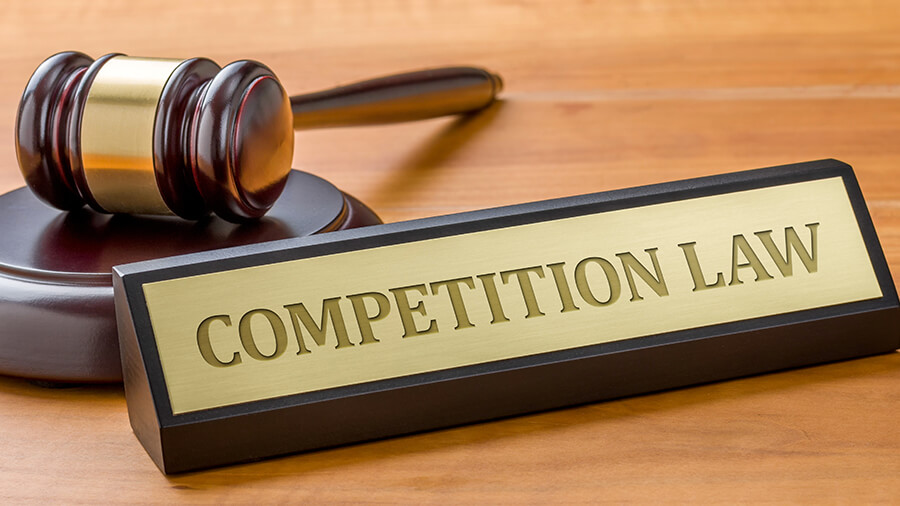Introduction
The intersection of patent rights and competition law is a complex and significant aspect of modern legal jurisprudence. The issue of whether a patentee’s actions can be subjected to inquiry by the Competition Commission of India (CCI) has been a subject of debate in several legal cases.
This blog explores four appeals and a writ petition that revolve around the question of whether the CCI can investigate a patentee’s conduct under the Competition Act, 2002. The case primarily focuses on the actions of two patentees, Telefonaktiebolaget LM Ericsson (Publ) and Monsanto, and how their assertions of patent rights were challenged by competitors and the CCI.
Brief Facts
In a series of legal battles, Ericsson and Monsanto challenged judgments of the Competition Commission of India (CCI) and various writ petitions were filed. LPA/246/2016 and LPA/247/2016 were brought by Ericsson against CCI, Intex Technologies, and Micromax Informatics, impugning a judgement dated 30.03.2016 dismissing two writ petitions of Ericsson against CCI and Micromax and Intex. Micromax and Intex had claimed unfair and discriminatory licensing conditions for standard essential patents (SEPs). CCI retaliated with LPA/550/2016, contesting a 2015 judgment in a writ petition by Ericsson against CCI and Best IT World.
Additionally, Monsanto filed LPA/150/2020, challenging the 2020 judgment in WP(C) 1776/2016, where CCI was allowed to proceed against Monsanto under the Competition Act based on information filed by informants.
Furthermore, Ericsson filed WP(C) 8379/2015 against CCI concerning allegations of non-compliance with fair, reasonable, and non-discriminatory terms for SEPs, potentially violating Sections 3 and/or 4 of the Competition Act.
Petitioner’s Submissions
The patenteesargued that the CCI’s jurisdiction, as per Section 2(f)(ii) of the Competition Act, is limited to complaints related to consumers who hire or avail services or matters concerning the performance of services. Since licensing of patents does not fall within these categories, the CCI has no jurisdiction to enquire into the business of patent licensing.
The patentees contended that the complaint by the informants mainly relates to licensing of patents, and the remedies for such allegations lie with the Controller or Civil Court under the provisions of Section 84(7)(c) read with Section 140(1)(iii)(c) of the Patents Act. These provisions address allegations of portfolio licensing and unfair rates, and the determination of Fair, Reasonable, and Non-Discriminatory (FRAND) rates is done by the Civil Court.
The patentees further argued that the CCI has no power to issue licenses or decide royalties based on FRAND assurances. If any jurisdiction exists for the CCI, it can only commence after proceedings for infringement/revocation have been considered and decided.
In summary, the patentees contended that the Patents Act is a special law dealing specifically with patents, and issues of imposition of conditions for licensing patents are provided for under Chapter XVI of the Patents Act, which includes anti-competitive agreements and abuse of dominant position explicitly. They contend that in view thereof, there is no reason for the Competition Act, which deals with anti-competitive agreements and abuse of dominant position generally, to override the special law.
Respondent’s Contentions
The CCI, supported by the informants, maintained that the Competition Act empowers it to examine any anti-competitive behavior, including that of patentees. They argued that the Patents Act does not preclude the CCI from investigating the actions of patentees under the Competition Act and asserted that the CCI’s role is essential to ensure fair competition in the market and protect consumers’ interests.
The Respondent’s specially rely on Section 3(5)(i)(b) of the Competition Act which provides, “Nothing contained in this section shall restrict the right of any person to restrain any infringement of, or to impose reasonable conditions, as may be necessary for protecting any of his rights which have been or may be conferred upon him under the Patents Act, 1970.”
Further, CCI relied upon the judgement of LPA/247/2016 which had held that there is no legal bar in law to the CCI proceeding against Ericsson under the Competition Act for violation of Sections 3 or 4 thereof.The CCI contended that the provisions of Section 3(5)(i)(b) and Section 4 of the Competition Act make it clear that only the CCI can consider whether a condition imposed in an agreement licensing a patent is unreasonable, i.e., such as would cause an appreciable adverse effect on competition within India, or an abuse of dominant position.
In summary, the CCI and the informants maintained that the Competition Act is a special law dealing with anti-competitive agreements and abuse of dominant position, and thus some stray provisions in the Patents Act, which deals otherwise with patents generally, cannot be understood as overriding the Competition Act, which is, in any event, a subsequent statute.
Issue before the Court
Upon analyzing the submissions made by the parties, the Court delved into the essence of both statutes and their respective scopes. The key issuesbefore the court were as follows:
- Which, among the Competition Act and the Patents Act is a special law and which is a general law; and
- Whether the CCI had the power to inquire into a patentee’s exercise of rights under the Patents Act
Observations of the Court
Issue 1
The Court acknowledged that both the Patents Act and the Competition Act are special laws in their respective field, however, by the principle of lex posterior derogat priori, the Patents Act must override the Competition Act, appears attractive at first blush. However, relying on the Constitution Bench dicta of the Supreme Court in Ashoka Marketing Ltd &Anr. v. PNB &Ors (1990) [2] and other similar rulings of the Apex Court, the Court observed that what must be considered is: (i) the subject matter in question, (ii) the intendment of the statutes in respect thereof, as well as (iii) whether the scheme and relevant provisions of the two statutes have any indication apropos which, the legislature felt must override the other, especially when both statutes have a non-obstante clause.
The Court stated that the legislative intent is apparent in that the Patents Act is especially for the field pertaining to patents, unreasonable conditions in agreements of licensing, abuse of status as a patentee, inquiry in respect thereof and relief that is to be granted therefor are all to be governed by the Patents Act.
Therefore, on this issue, the Court held that there is no scope of doubt that the Patents Act is the special statute, and not the Competition Act. It is also a fact that Chapter XVI of the Patents Act is a subsequent legislation as compared to the Competition Act.
Issue 2
The Court, after meticulously examining the arguments presented by both parties, turned its attention to the core issue of whether the Competition Commission of India (CCI) possesses the jurisdiction to inquire into matters concerning the exercise of patentees’ rights and licensing of patents.
At the outset, the Court disagreed with CCI’s contention only the CCI can consider whether a condition imposed in an agreement licensing a patent is unreasonable, i.e., such as would cause an appreciable adverse effect on competition within India, or an abuse of dominant position. The Court stated that the inquiry that the CCI proposes to conduct in respect of an assertion of patent rights is nearly identical to that which the Controller will conduct under Chapter XVI of the Patents Act.
The Court noted that the Competition Act makes provision for reasonable conditions being imposed in an agreement concerning exercise of rights under the Patents Act. However, since such reasonable conditions are exempted from examination under Section 3(5)(i)(b) of the Competition Act, it is indicative of the legislature’s intendment as to the exclusive domain of the Patents Act regarding reasonable conditions.
Decision of the Court
The Court set aside the 2016 and the 2020 judgmentsand quashed the proceedings initiated by the CCI impugned in the said appeals/petitions, with no costs.
The Court held that once a settlement has been reached between the informant and person against whom the information is filed, the very substratum of the proceedings by CCI is lost and the 2015 Judgement has rightly quashed the same.
To conclude, the Court held that the CCI lacked jurisdiction over actions of a patentee in the exercise of their rights under the Patents Act. It emphasized that Chapter XVI of the Patents Act provided a comprehensive framework to address unreasonable licensing conditions and anti-competitive practices by patentees. Therefore, the Court quashed the CCI’s proceedings against Ericsson and Monsanto.
Analysis
The Court’s decision is in line with the principle that a special law, such as the Patents Act, prevails over a general law, like the Competition Act, on matters within its domain. The Court interpreted the legislative intent behind both statutes, highlighting that the Patents Act exclusively governs patentees’ conduct. The Competition Act, being a general legislation on competition, does not have the same focus on patent rights as the Patents Act.
The Court also addressed the CCI’s argument that its decisions have an in rem effect, while the Controller’s decisions under the Patents Act have an in personam effect. The Court reasoned that the subject matter of inquiry, which concerns the exercise of patent rights, is not solely the domain of the CCI but is also addressed by the Patents Act. Therefore, the in rem and in personam distinction did not affect the Court’s conclusion.
Conclusion
The judgment in the present case establishes a crucial precedent regarding the relationship between patent rights and competition law in India. The Court’s ruling clarified that the CCI does not have jurisdiction to investigate patentees’ actions under the Competition Act. Instead, the Patents Act provides a comprehensive framework to address issues related to anti-competitive practices and abuse of patent rights.
This decision establishes a precedent on the boundaries of the CCI’s powers, delineating the scope of its authority over patent-related matters. The judgment will have far-reaching consequences for innovators, patent holders, competitors, and consumers, as it will define the extent to which patentees can assert their rights without infringing upon fair competition in the market.
References
[1] LPA 247/2016 and connected matters;
[2] 4 SCC 406

